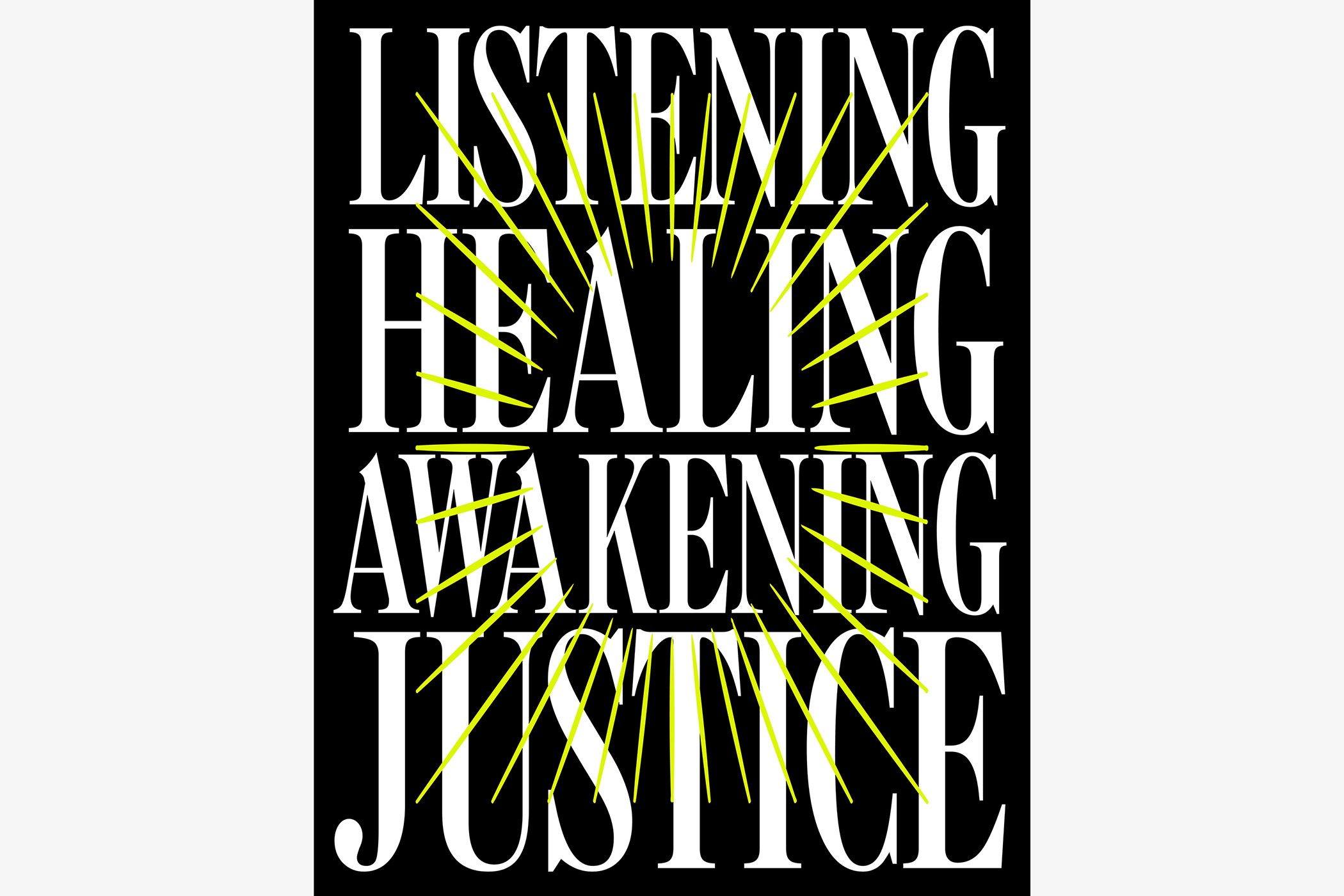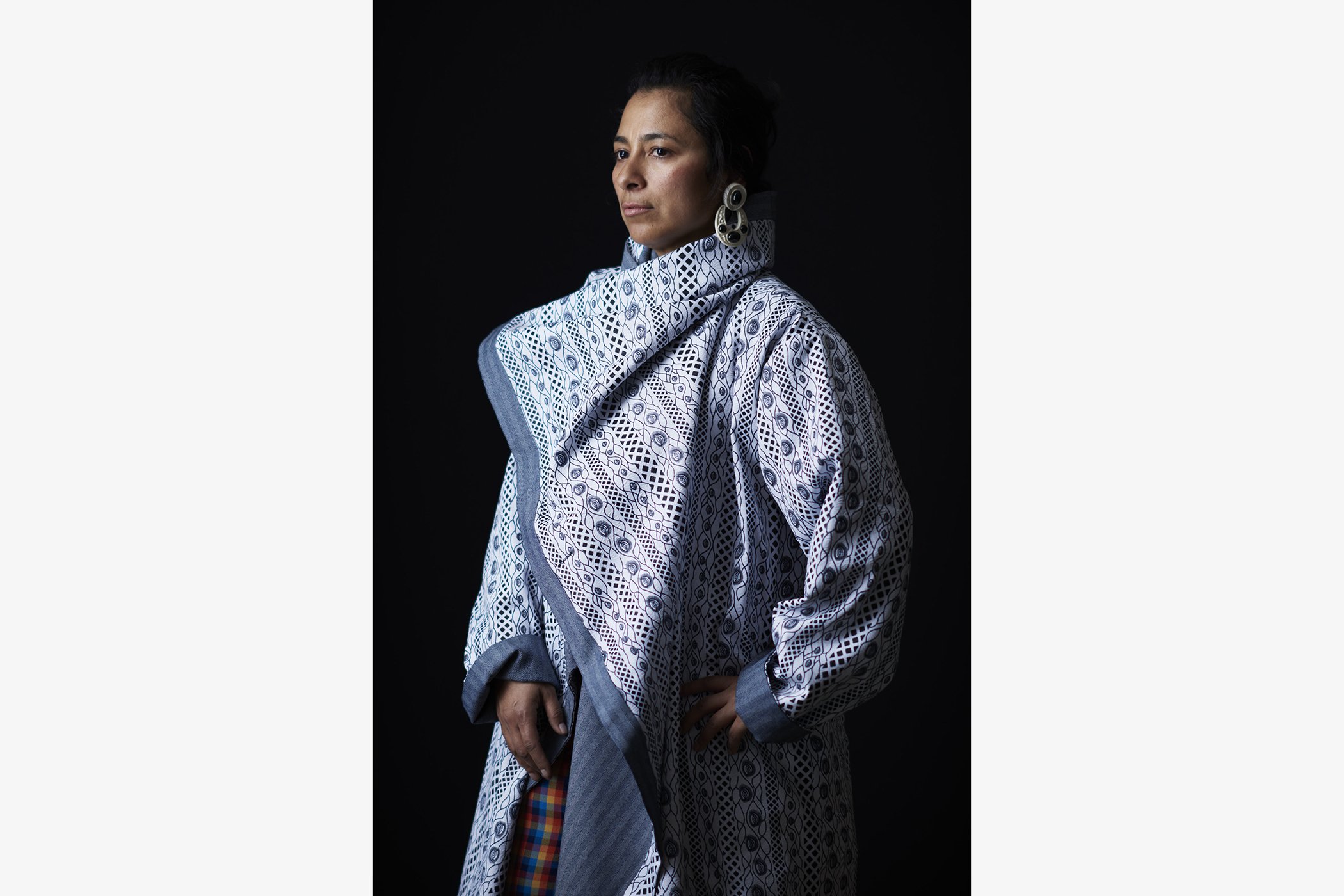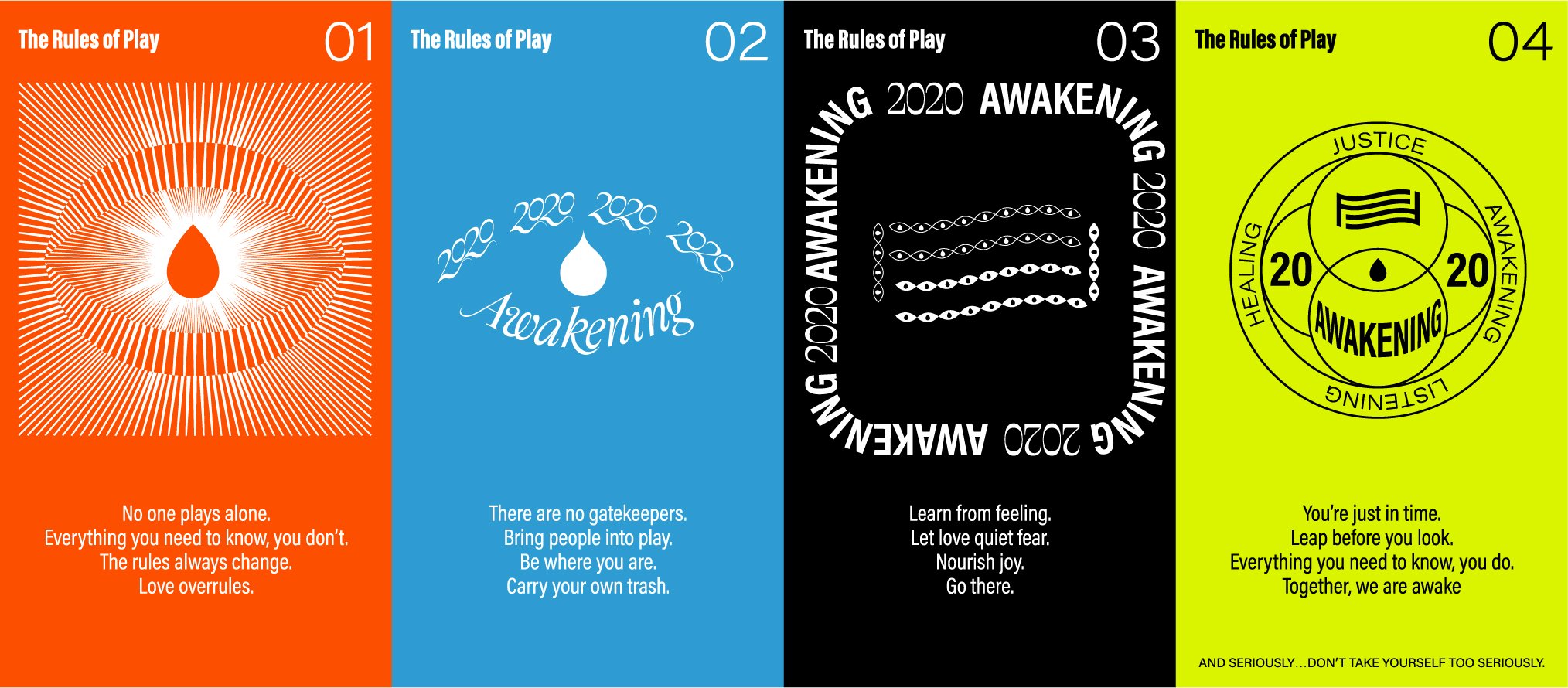Being “woke” has become shorthand for understanding the political, historical, and social forces that shape our lives. But it also suggests a sense of being awoken from a deep ideological slumber, rubbing your eyes and stretching your limbs, shaking off some lingering drowsiness.
Being wide awake, on the other hand, suggests clarity, focus, and the immediate capacity for action.
That’s the idea that For Freedoms, an artist-run, “anti-partisan” platform, was going for when it unveiled the Wide Awakes earlier this year, alluding to the band of revolutionary abolitionists who fought to end slavery in the United States in the 1860s.
The original Wide Awakes have inspired activist groups over the past century who have tried to empower everyday citizens to change the status quo.
And this same revolutionary fervor guided the latest incarnation of the Wide Awakes down the streets of Manhattan on Oct. 3. Artists wore capes and colorful outfits, and held signs painted with wide-open eyeballs. They chanted for social justice, danced, and invited people to take part in a revival of US democracy.
These events have been accompanied by a decentralized and growing movement of people who are making art and engaging in civic life to reverse undemocratic trends in US politics — such as authoritarian tendencies and voter fatigue — and turn the civic sphere into a place of radical joy and communal solidarity.
It’s a bold, big-picture campaign called the 2020 Awakening that’s taking flight in the lead-up to a presidential election marked by the COVID-19 pandemic, misinformation, and fears of potential conflict.
The artists behind For Freedoms think that art can play a key role in regenerating US democracy, returning it to the people, and sparking in voters a sense of shared responsibility.
They’ve released an “Infinite Playbook” for anyone who wants to join their cause.
“All art is political,” Eric Gottesman, a co-founder of For Freedoms, told Global Citizen. “Culture creates public policy. Culture is the strongest force we have in our society.
“Art can be a kind of Trojan horse,” he said. “And popular culture, in the way that it does, is able to deliver some of these ideas [to the public].”
 For Freedoms’ 2020 campaign will focus on not only increasing voter engagement, but The New Four Freedoms: Listening, Healing, Justice and Awakening.
For Freedoms’ 2020 campaign will focus on not only increasing voter engagement, but The New Four Freedoms: Listening, Healing, Justice and Awakening.
For Freedoms’ 2020 campaign will focus on not only increasing voter engagement, but The New Four Freedoms: Listening, Healing, Justice and Awakening.
A Divided Country?
It’s become a cliche that the US is hopelessly polarized. Clashing protests, gerrymandering, negative campaign ads, angry family dinners — it sometimes seems like both everyday US citizens and elected leaders on different sides of the political divide just yell at, slander, and try to undermine one other.
As all of this noise and fury and partisan gridlock play out, one thing seems to remain constant: the ongoing hardships of the general public. In recent years, especially throughout the COVID-19 pandemic, inequality, poverty, hunger, and evictions have risen; police brutality has continued; and climate change and biodiversity loss have intensified. The American people, when asked in polls, want all of these issues addressed.
The widespread consensus on many crucial issues raises the question: Is the American public really that polarized when you peel back the layers of partisan allegiance?
If you take a historical view, the problem of today’s polarization looks different. For most of US history, the majority of the population was systematically disenfranchised, prevented from having their voices heard, which is arguably a much greater form of polarization than seen in today's social media echo chambers.
Instead of focusing on the divisions in the political landscape, the artists behind For Freedoms want to bring our attention to a potentially even greater problem: low levels of civic engagement, and, more broadly, a dearth of imagination in politics.
After all, more eligible voters didn’t cast a ballot in the 2016 than voted for either of the two leading candidates. Many citizens don’t even think their vote matters. And an overwhelming majority of citizens don’t trust the federal government.
Maybe the American people simply need to reimagine their relationship to politics and regain a sense of their collective power. At least that’s the theory that For Freedoms has been testing out across the country as it hosts town halls, erects thought-provoking billboards, transforms canonical forms of art, and inspires people to make their own art.
Its billboards, installed in all 50 states in 2018, invited people to think about pressing political issues in a more open-ended way. And its town halls have revealed a side of the American public that’s a lot more amenable to conversation than social media.
“The town halls were really a vehicle to dig into the issues a lot deeper, deeper than the way we hear about them in the news, or converse about them in passing with a friend, or the way we may talk about them in school,” said Michelle Woo, a co-founder of For Freedoms. “Rather than try to always hit these talking points, it was about coming into the space and being vulnerable and being able to express the gray areas, and how that impacts our position and thoughts about a particular issue.”
“The reason why we were able to do that is because artists were really leading the conversations and art lends itself really nicely to different perspectives,” she said. “It’s inherently subjective, so people are less afraid to say what they think in an artistic context.”
Over the past four years, For Freedoms has held hundreds of town halls across the country around four themes that invoke the famous Four Freedoms paintings by Norman Rockwell, inspired by President Franklin D. Roosevelt’s “Four Freedoms” speech in 1941. The paintings represent freedom of speech, freedom of worship, freedom from want, and freedom from fear. For Freedoms reimagined these paintings in 2016.
Town halls are shaped by local issues and have focused on topics such as food insecurity, what it means to be an immigrant in the US, disability rights, labor rights, and more.
Every town hall strives to investigate preconceptions, get people to talk to one another, and spur attendees to think about civic engagement in new ways.
“Art doesn’t offer solutions necessarily,” said Woo. “It offers different entryways into a thing, whether it’s a historical narrative, whether it’s a certain political issue, whether it’s a particular moment. I think it inspires us to imagine what we cannot always see and see things more complexly.
“It inspires imagination and deeper reflection of your beliefs and the positions you take in society,” she said. “It doesn’t offer us solutions; it offers us a more expansive way to engage in society.”
For Freedoms’ goal is ultimately more ambitious. It wants to use art to transform the very idea of civic engagement, infusing it with a sense of joy, wonder, and shared purpose.
Art as a Revolutionary Force
Artists use various media for their work, from paintbrushes to cameras to marble to found objects. But the only truly essential ingredient of art is imaginative license — something everyone in the world can access.
This notion of the universality of art is often lost behind the walls of museums and galleries. But For Freedoms is trying to bring it mainstream, reminding people across the US of their artistic potential.
Some of the most profound and impactful art forms in the world were developed in local communities at the grassroots level, according to Claudia Peña, the director of For Freedoms.
“As a visceral and intellectual form of expression, an urgent form of expression, what has changed the world more than hip-hop and graffiti?” she said.
 Claudia Peña, director of For Freedoms.
Claudia Peña, director of For Freedoms.
Claudia Peña, director of For Freedoms.
Community art forms like these shape society, politics, and the contours of daily life, and they provide a lesson in the power of everyday people who dare to imagine new possibilities.
For Freedoms wants people to carry this artistic energy into all areas of life, especially the realm of civic engagement, where imagining new possibilities can breathe life into a system that has alienated and disenfranchised millions of people.
Countless voters in the US feel disconnected from the processes and outcomes of democracy.
“I’m just really confused,” Lauren Reyes, a 21-year-old voter, told Voice of America (VOA) before the 2016 presidential election. “Should I vote? Should I not vote? It’s morally confusing.”
She added that she didn’t want the candidate she voted for to do something that would make her feel guilty. Other citizens are turned off by the entire prospect of voting.
“I don’t like the extremist atmosphere that is politics nowadays — sort of the shouting, who is more extreme, who is more passionate,” Rob Carter, a 20-year-old voter, told VOA.
What would politics look like if there were universal voter turnout? If the candidates on ballots reflected people’s values and the issues at stake in each election were meaningfully addressed after votes were counted and power distributed?
That’s the sort of imaginative exercise that For Freedoms want people to try. It’s the type of imaginative exercise that could inspire people to get excited about politics, build movements of people, and, ultimately, create the type of civic joy that seems so unlikely today.
Civic joy of this kind could revolutionize American democracy, according to the political scientist Eric Liu. With civic joy comes civic engagement, people coming together for a shared purpose. This kind of civic revival would entail fundamental things like having conversations with neighbors about the possiblities of democracy, joining political organizations and canvassing for issues, and attending town halls and community events. It would also mean going further, pushing the bounds of what it means to be a citizen, fully inhabiting democratic possibilities by making art that envisions a better world, developing new national narratives, dancing toward freedom, and being so infectious with joy that others are compelled to join.
The Wide Awakes march on Oct. 3 was a test run of sorts. What if for every election, every campaign, people gathered to lift each other up, celebrate democracy, and explore their imaginations?
“We often forget how to be free and creative and imaginative based on our social and political conditioning,” said Woo. “But I think that can change, and that can be different. Part of the work we’re doing is bringing these ideas into a more public arena.”
 2020 Awakening.
2020 Awakening.
2020 Awakening.









